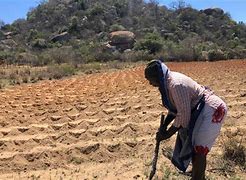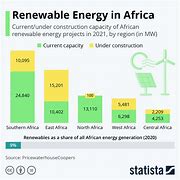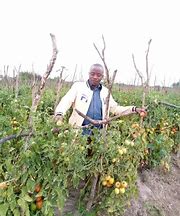As Africa confronts the pressing issues of climate change and food insecurity, a wave of innovative agricultural solutions is surfacing to reshape the farming landscape on the continent. These cutting-edge approaches combine traditional wisdom with modern technology, striving to boost productivity, ensure sustainability, and uplift livelihoods.
Embracing Regenerative Agriculture
In East Africa, regenerative agriculture is gaining momentum as a transformative practice that focuses on enhancing soil health and biodiversity. By implementing techniques like crop rotation, intercropping, and composting, farmers are working towards improving yields and building resilience in their fields. A study conducted in Rwanda and Kenya highlighted that households adopting multiple regenerative practices reported enhanced food security outcomes.
“Innovative pest management methods are crucial in sustainable agriculture,”
stated an expert in a recent report by africasustainabilitymatters.com.
“These approaches not only protect crops but also contribute to environmental conservation.”
Revolutionizing Pest Management
The International Centre of Insect Physiology and Ecology (ICIPE) in Kenya has developed push-pull technology as an eco-friendly strategy to tackle pests. This method involves planting repellent species like Desmodium amidst cereals and using trap plants such as Napier grass around them. By naturally deterring pests, farmers can reduce their reliance on harmful chemical pesticides while simultaneously increasing yields. The approach not only safeguards crops but also promotes environmental preservation.
Digital Advancements and AI Integration
The integration of digital tools and artificial intelligence (AI) is reshaping African agriculture by providing tailored advice to farmers on fertilization practices and pest control through platforms like Virtual Agronomist and PlantVillage in Kenya. These technologies have proven instrumental in boosting yields significantly, especially in regions with limited access to conventional extension services.
“Agritech startups play a vital role in empowering smallholder farmers across Africa,”
highlighted a recent study featured by africasustainabilitymatters.com.
“These companies leverage mobile technology to bridge gaps in market access and financial services.”
Empowering Farmers through Agritech
A growing number of agritech startups are revolutionizing the agricultural sector by connecting farmers with markets, offering financing options, and disseminating essential information. Companies like Twiga Foods and Apollo Agriculture utilize mobile platforms to link producers with buyers while providing financial products tailored to their needs. Such initiatives facilitate market access, minimize post-harvest losses, and promote financial inclusion among small-scale farmers.
Sustainable Energy Solutions for Farming
To combat the challenges posed by climate change, sustainable energy solutions are being integrated into agricultural practices across Africa. From solar-powered irrigation systems to biogas production facilities and wind energy applications, these technologies enable farmers to reduce reliance on fossil fuels, cut production costs, and enhance resilience against climatic variations.
“As African agriculture evolves through a blend of tradition and innovation, achieving food security remains at the forefront,”
emphasized an industry insider as reported by africasustainabilitymatters.com.
The convergence of traditional agricultural practices with modern technological advancements heralds a new chapter for African farming communities. Through the adoption of regenerative techniques, innovative pest management strategies,
digital tools utilization,
and sustainable energy solutions incorporation,
the continent is poised towards attaining food security,
driving economic growth,
and ensuring environmental sustainability.
Continued investments coupled with collaborative efforts will be pivotal in scaling up these next-generation agricultural solutions across Africa.
—
*Attribution: This article includes insights from africasustainabilitymatters.com.*









Leave feedback about this